The inauguration of Iran’s hard-line new president Thursday, and the country’s increasingly aggressive approach to the outside world, could spell the end of President Joe Biden’s bid for diplomacy with Tehran, experts say.
In the weeks leading up to Ebrahim Raisi’s swearing-in as president, the regime has adopted a combative stance on nuclear negotiations with the U.S. and other world powers, and it now stands accused of orchestrating a drone attack on an Israeli-managed oil tanker that left two crew members dead.
Download the NBC News app for breaking news and politics
Before Raisi’s election in June, three months of diplomatic talks in Vienna had appeared close to securing a revival of the 2015 nuclear deal.
But the supreme leader, Ayatollah Ali Khamenei, who wields ultimate authority in Iran, never gave the Iranian negotiators in Vienna a green light to clinch the deal, and now it’s unclear whether any agreement will be reached.
“All the signs are pointing in the wrong direction,” said Ali Vaez of the International Crisis Group, a think tank based in Brussels.
Two senior European officials told NBC News it appeared increasingly unlikely that Iran would agree to resume nuclear talks in Vienna this month.
The 2015 agreement lifted sanctions on Iran in return for strict limits on its nuclear program. Former President Donald Trump pulled the U.S. out of the accord, and Biden has promised to return the U.S. to the deal if Iran returns to compliance with its nuclear provisions.
In defiance of its obligations under the 2015 accord, known as the Joint Comprehensive Plan of Action, or JCPOA, Iran has ratcheted up uranium enrichment, employed more advanced centrifuges, started producing uranium metal and restricted U.N. inspectors’ access to nuclear facilities. In Iraq, Iran-backed militias have fired rockets at bases used by U.S. troops and contractors.
Iran, meanwhile, has doubled down on negotiating demands that Washington has already dismissed as unrealistic, including proposed “compensation” for the effects of Trump’s decision to pull the U.S. out of the agreement and a U.S. guarantee that a future president won’t do the same. Iranian media also reported that Tehran would no longer discuss a prisoner exchange with the U.S. that could have secured the release of Americans held by Iran.
Iran is signaling that former President Hassan Rouhani’s approach based on cooperation “is over and that it failed,” said Eric Brewer of the Center for Strategic and International Studies, a think tank based in Washington. “And this is the beginning of a more hard-line, confrontational approach, one that the supreme leader happens to be more comfortable with.”
Iran’s political leaders believe the closer they move to building a nuclear capability, the more leverage they have to gain concessions from the U.S. and its European allies, Vaez and other experts said.
Iran senses that the Biden administration is eager to avoid being pulled into a conflict in the Middle East and wants to focus on other priorities, said Karim Sadjadpour, a senior fellow at the Carnegie Endowment for International Peace.
“They have the confidence of a bazaar merchant who believes the American tourist is not going to leave without buying the carpet,” he said.
Iran’s leadership also has concluded that the worst of the U.S. economic pressure has receded, and the country is now exporting significant amounts of oil to China.
“Iran’s growing oil exports to China have diminished their sense of urgency to return to the JCPOA in order to get sanctions relief,” he said.
But the Iranians run the risk of overplaying their hand.
Their approach represents a “serious miscalculation,” Vaez said. The Iranians are failing to take into account the potential response of U.S. and European officials and how provocations in the region could trigger a dangerous cycle of escalation, he said.
Vaez compared the situation to a previous round of nuclear negotiations in 2005 under another hard-line president, Mahmoud Ahmadinejad. In that case, Iran struck a belligerent tone in talks with European governments, and the negotiations aimed at curbing Tehran’s nuclear program collapsed. Iran then ramped up its nuclear work, but Western governments ramped up economic pressure that squeezed Iran’s economy, triggering a tense standoff until Rouhani took office several years later.
Even with the more aggressive stance in Tehran, it’s still possible that an agreement could be reached to revive the 2015 deal, former U.S. officials said. Under that scenario, Raisi could gain some additional sanctions relief and portray it as a victory, claiming his administration secured a better agreement than the previous president.
By the end of the month, it is likely to be clear whether Tehran is serious about negotiations, said Brewer, who worked on nuclear proliferation issues in the Obama and Trump administrations.
By then, the Iranians will have to decide whether to hold another round of talks with world powers, who would lead their negotiating team and what position they would take if they sit down for new talks.
But the prospects for a diplomatic deal look increasingly fraught, and the Biden administration could face some difficult choices.
If the talks collapse, the Biden administration will have to weigh whether to keep the door open to diplomacy over some future agreement or whether to introduce more sanctions to deter Tehran from expanding its nuclear program or taking other provocative actions. An option could be to impose sanctions to block Iran’s oil exports to China, experts said.
If Iran’s nuclear program continues to advance, the value of reviving the 2015 accord will fade, and hawks in Washington and Israel could once again urge military action to prevent Tehran from building a nuclear weapon, experts said. In similar circumstances during the Obama administration, Israel pushed hard for military strikes against Iran’s nuclear program, according to former Defense Secretary Robert Gates’ memoir.
Suicide drones
Apart from Iran’s nuclear program, the U.S. and its allies in the Middle East are increasingly concerned about the more immediate threat from the regime’s arsenal of drones and cruise missiles.
The U.S., Britain and Israel blamed Iran for the lethal attack last week on the oil tanker Mercer Street off the coast of Oman, which killed a British national and a Romanian citizen. Iran has denied responsibility.
Iran has been accused of a number of other attacks on Israeli-linked ships, but this was the first one that resulted in deaths. Western governments said Iran used a one-way explosive “suicide drone,” which detonates on impact.
Secretary of State Antony Blinken, who said Iran is “increasingly employing” the lethal weapon across the region, vowed a collective response to the attack.
In the wake of assaults on commercial shipping, including vessels linked to Israel, the Arab Gulf states and Israel — which are skeptical of reviving the nuclear deal — are urging the Biden administration to hold a firm line against Iran.
Israel appealed Wednesday for concerted international pressure to stop what it says is Iran’s regional aggression. Defense Minister Benny Gantz said it was “time for diplomatic, economic and even military deeds — otherwise the attacks will continue.”
Only days after the Mercer Street came under attack — another commercial ship was hijacked briefly off the coast of the United Arab Emirates in the Gulf of Oman this week. Iran denied any role in the incident. The hijackers left the ship Wednesday.
End of an era
Thursday’s inauguration ceremony for Raisi marks the triumph of ultraconservative elements in Iran and the defeat of a more pragmatic-minded faction led by Rouhani, which favored diplomatic engagement with the West to help ease the country’s isolation.
Raisi prevailed in an election that rights groups said was neither free nor fair. The regime banned several prominent political figures from appearing on the ballot, in effect removing any serious competition. Many activists had called on Iranians to boycott the election, which produced record low turnout. Iran has said the election was fully legitimate.
Unlike his predecessor, Raisi has never championed the benefits of diplomatic engagement with the U.S. or European governments. Khamenei, the supreme leader, who has been Raisi’s mentor, has chastised Rouhani’s administration as being naive for having placed trust in the West.
Raisi has been sanctioned by the U.S. Treasury Department for his alleged role in the executions of political prisoners as a prosecutor in the 1980s. Human rights organizations also have alleged that Raisi was among those who ordered the executions. Raisi denies the allegations.
Richard Dalton, a former British ambassador to Iran, said Raisi is seen as a loyal figure who is likely to be more beholden to Iran’s powerful, hard-line Revolutionary Guard than Rouhani.
“He’s a long-term member of the leadership of Iran, and he didn’t get the confidence of the supreme leader without being a warrior in the interests of the Islamic Revolution,” said Dalton, who was ambassador to Iran from 2002 to 2006.
With the departure of Rouhani and his more pragmatic allies who argued for constructive diplomacy with the West, there will be few if any dissenting voices among the top leadership, experts said.
“All the key decision-makers belong to the same faction and share the same world view and are susceptible to groupthink,” Vaez said.
Brewer said Raisi, Khamenei and other hard-liners appear ready to withstand U.S. sanctions despite the economic damage, believing the country has adapted to the pressure.
“They understand the benefits that would come with sanctions relief, but they think Iran can weather this storm for a longer period of time,” Brewer said. “They believe in this notion of a resistance economy … that Iran doesn’t need to be economically linked with the international community and the West.”

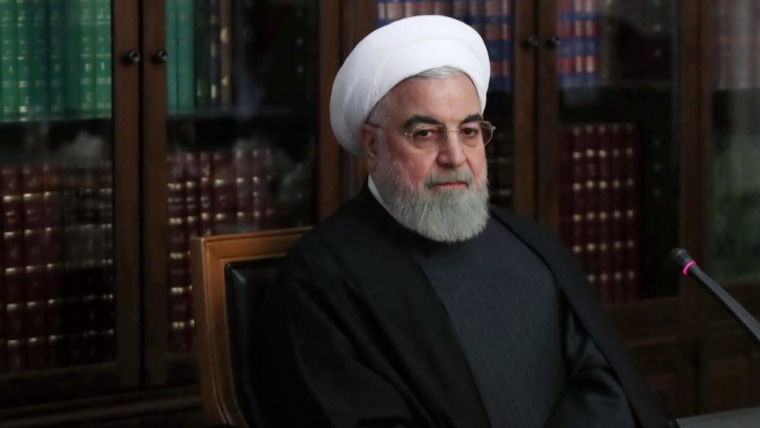
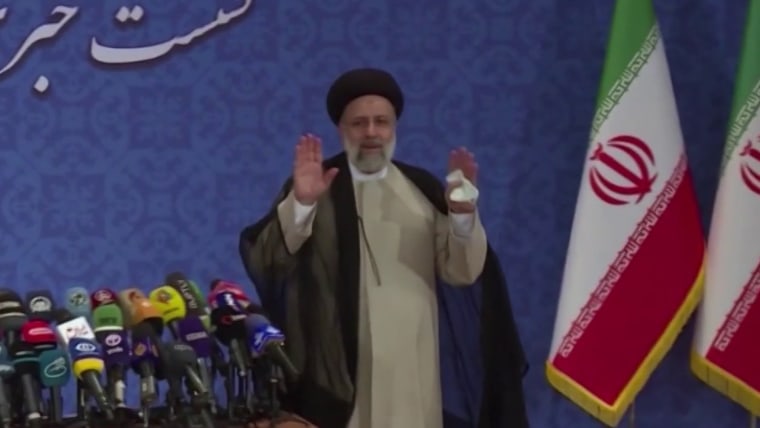

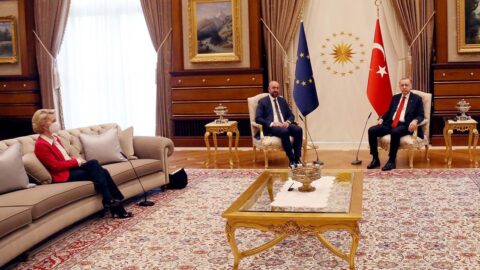

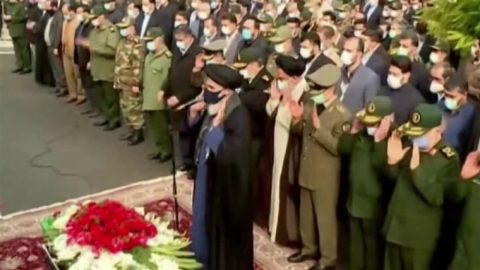


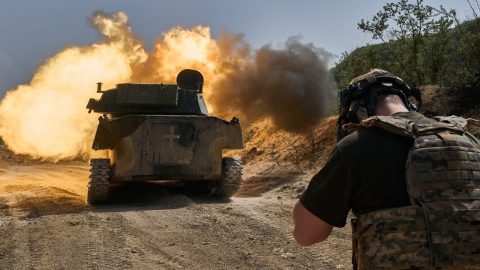
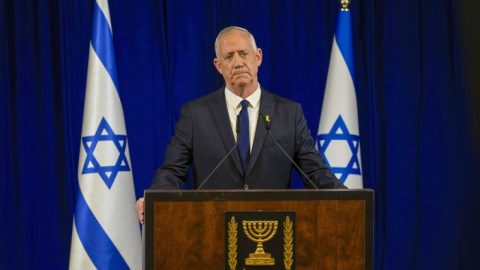
Recent Comments